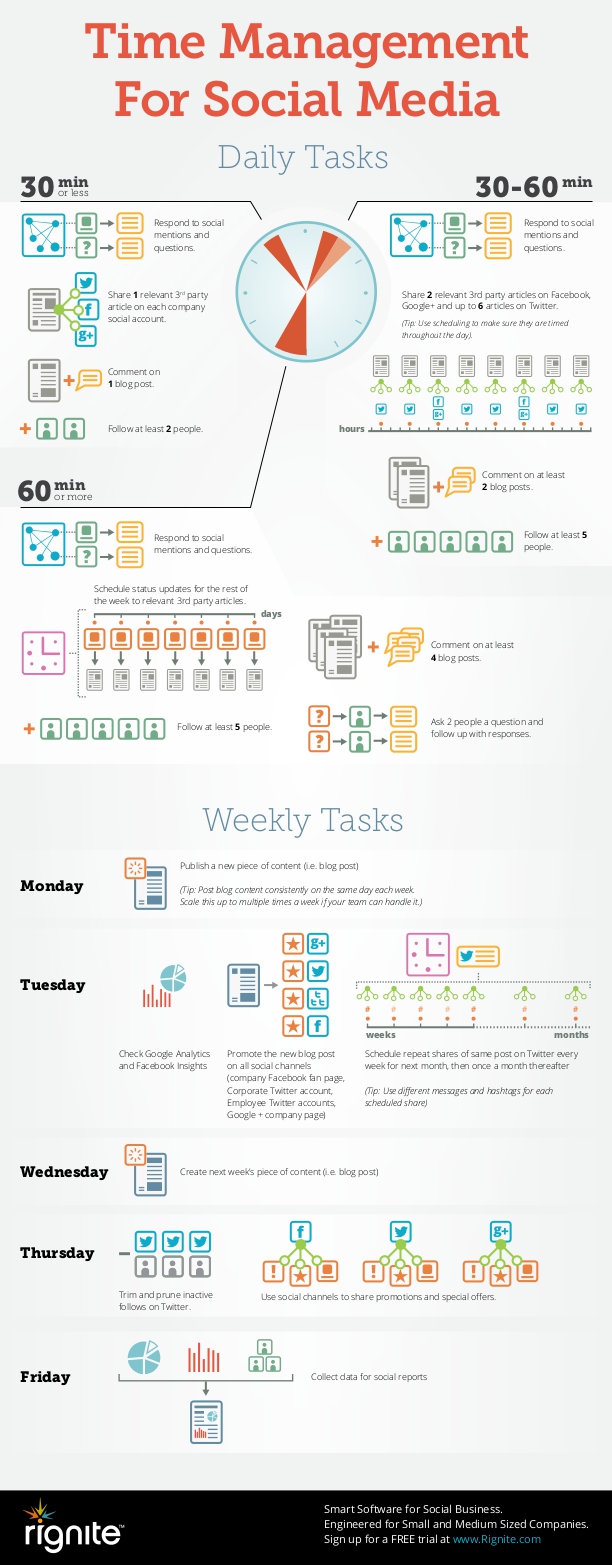There might be affiliate links on this page, which means we get a small commission of anything you buy. As an Amazon Associate we earn from qualifying purchases. Please do your own research before making any online purchase.
Most people today are addicted to the Internet.
One particular piece of data in Mary Meeker’s Internet Trends Report for 2018 reveals that over the past year, the average adult in the US spent almost six hours per day on the Internet.
The largest portion of that time is spent browsing social media. The other popular activities are checking emails, reading entertainment articles, watching videos, and shopping.
Certainly, the Internet provides positive benefits. It is the greatest (and fastest) source of information that we have available to us.
It allows us to keep in touch with people who live far away and keep up on recent news in the world. Moreover, in short doses, browsing online has helped people de-stress after a trying day.
That said, by spending too much time online, you miss out on the amazing and truly important things in life.
Are You Addicted to the Internet?
You are probably reading this post because you are looking for tips to help stop wasting time online, either for yourself or someone you care about.
You have come to the right place because in this article we will show you how to stop spending too much time on the Internet, how to regain control of your life, and how to overcome your fear of missing out.
Before we move on to the steps to help you succeed in the challenge at hand, let’s first discuss the things that you’re really missing out on because you spend too much time online.
It is easy to spend more time online than planned, which usually leads to time pressure, failure to do other activities, mental overload, and neglecting your personal needs such as attending social engagements, sleeping, and exercising.
Research has also found that there is a correlation between stress and one's level of availability on social media sites, especially surrounding the burden of guilt for not immediately replying to messages.
However, is it worth it to miss out on other opportunities in life that aren't offered online just so you can send a timely reply to someone?
What You’re Missing By Spending Too Much Time Online
Let's look at some things that you are possibly passing up in exchange for being glued to the Internet.
1. Enjoying the company of real friends—old and new
Spending too much time online robs us of the opportunity to improve the quality of our friendships.
What even makes a real friendship these days?
Does it depend on if the person knows all about your most recent date, or how often you find yourself talking to them? With all of the available modes of communication and with all of our Internet contacts, who are our real friends?
The truth is, only your real-life friends truly know your personality and are not scared to tell you how it is. Yes, your online friends may offer you a superficial opinion, but there is no one who only knows you online and can tell you when it is time to get your stuff together.
A real-life friend won't sugar coat it when you are obviously making a mistake. Real-life friends can also make you feel good even when you’re depressed about going through a difficult time because they really know you, and they know what you need to lift your spirits.
Sure, an online friend may try to console you, but it simply doesn’t have the same impact.
2. Having a more meaningful romantic relationship
Spending too much time online and on social media can be harmful to your romantic relationships for two reasons.
First, if your romantic relationship is online, you're unable to read your partner's body language when you communicate, and the level of communication will remain superficial.

You are missing out on communicating deep, emotional feelings to each other, which is where a miscommunication often occurs because you can't read your partner's tone or see their behavior. Whatever you are imagining in your head is probably not exactly what this person is like.
Spending too much time online can also impact your romantic relationship if your partner is with you in real life. Let's say you take a day to go on a hike or have a picnic in the park.
What kind of time are you really spending together if one person is constantly scrolling through their phone? Being on the Internet can keep you from being present with your partner and enjoying their company.
3. Being around when your child during important milestones
It's not only kids who are spending too much time online. Parents are also guilty of overdoing the screen time, and it can have troubling consequences for their children.
Parents often ignore their kids in favor of their smartphones.
This is a mistake because having face-to-face interactions is the most effective way that children learn a language, learn about their emotions and how to regulate them, learn how to have conversations, and learn how to read facial expressions.
If this isn't happening, not only are children missing out on developmental milestones, but parents are too busy looking down at their screens when the child does do something new.
If you're ready to spend quality time with your kids and add structure to your day, create a morning routine for your children. The video below provides a 6-step process you can use to create a great morning routine for your kids:
4. Experiencing a heady sense of accomplishment as you scratch off items from your bucket list
Do you even have a bucket list?
If you spend too much time online, you aren't actually getting out there and doing anything.
You're not traveling or doing that skydive you always wanted, you're not getting out and experiencing the world, and you're certainly not working toward any significant long-term goals.
Chances are, whatever you are doing online right now, you will forget about in a week. You aren't making any memories.
5. Spending time doing something that is of personal value to you or that benefits the rest of the world
For centuries, some of the greatest thinkers have agreed on one thing: True happiness is found in helping other people.
Helping other people may be the secret to living a happy life that is also healthier, more meaningful, and more productive.
You may think that you are getting personal value out of the entertainment that the Internet is providing you in the moment, but the truth is, none of that satisfaction will last past the short term.
Spending too much time online has negative mental and physical effects.
It can lead to anxiety, sleeping disorders, depression, isolation, and feelings of guilt. It can also cause headaches, weight gain, carpal tunnel, and blurred or strained vision. It has both short-term and long-term effects on your health.
The short-term effects include not completing tasks, forgetting responsibilities, and gaining weight. The long-term effects are more physical, and include symptoms such as backaches, neck pain, and vision problems.
To give you an idea of the extent that being addicted to social media can affect people’s lives, watch this half-hour documentary.

5 Strategies to Stop Wasting Time on the Internet
It could be time to admit that you have a habit of procrastinating.
The best way to effectively manage your time is to minimize your distractions, focus on only the critical tasks that you must complete, and find a reliable way to gauge your productivity.
If you are ready to severely cut down on the time you spend on the Internet, it may seem like it will be a challenge. Here are some good digital habits that you can build to make this transition easier.
1. Monitor your Internet usage time.
We often convince ourselves that it is important to be online as much as we are because of our roles at work, home, or school. It’s time to admit that this is untrue.
Yes, you probably need to use the Internet for your homework or work purposes, but you probably often find yourself getting off track and spending more time online than you needed to in order to complete your task.
To break this habit, learn how to manage the time you spend online.
Monitor how long it takes you to do each task and record exactly what you did. Then determine if the activity was truly necessary. You’d be surprised at how much time you actually spend on necessary versus unnecessary online activities.
In doing this, you will be better able to focus on your real priorities and avoid wasting time doing idle things such as scrolling through someone else's vacation pictures.
For more serious cases, you may need to do a social media detox.

2. Block your access to favorite time-sink websites.
While it may feel ironic to use technology to stop you from using technology, this is where we are today.
To increase your productivity while you are online, use apps that block your go-to sites. This will lessen the temptation to jump over to these sites if the task at hand is challenging or undesirable.
Doing this will help stop the temptation that you may often have to get on social media or check the latest entertainment news.
You can control these apps so they only block your chosen websites during certain parts of the day or for a certain amount of time so you know exactly the kind of time you have to complete your work.
3. If your task calls for using a computer, do it immediately.
Whether it’s research for a school project or emails from work that need to be answered, finish these tasks as soon as possible.
Get all of the information that you need from the Internet in the beginning so you don't have to get back on. This way, you avoid the pitfall of procrastination and your productivity does not suffer.
If you know you will have to get on the computer, you may be tired of doing your work by the time you actually get online.
This feeling will tempt you to take a break, which could turn into hours of mindlessly browsing through the Internet. Do all of your computer work at the beginning of your project when your motivation is high.
4. When working, avoid using your phone.
Due to smartphones, it is now very easy to access the Internet. To stop wasting time online, put away your phone (in silent or airplane mode) when you are working or studying.
Make sure that you are unable to see or hear any notifications that come up. Keep your phone in another room or zipped up in your bag so it is out of sight and you are not tempted to check it.
With your phone out of the way, your concentration will increase for the job at hand. After you do this for a while, you will actually find it quite liberating because you will see the amount of work you are able to get done and realize that you really didn't miss anything online in the process of being productive.
Psychologist Adam Alter explains in this 10-minute video why our gadgets make us feel unhappy, and gives suggestions on how to live a richer, more meaningful life.
5. Seek professional help.
The problem with any type of addiction is that it can be difficult to determine when a hobby has taken a hold of your life.
But if you can't seem to stick to your own boundaries and you are spending more time online than you are with real people, it may be time to seek professional help.
Recently, Internet addiction has become a cause for concern in clinical psychiatry. If the effects of excessive Internet use are severely impacting your personal life, professional intervention should be sought out, especially if you feel like you are unable to live without the Internet.
Final Thoughts on Stop Wasting Time Online
Without a doubt, the Internet has been instrumental in making our lives better. However, spending too much time online is not worth the negative effects that come with it, both physically and mentally.
Don’t be misled to believe that you will miss out on something if you’re not online. Real-life and everything that truly matters are outside of the screen.
If you suffer from FOMO, consider the fact that you are much more likely to miss something significant that happens in real life by spending too much time online, rather than missing things online because you are out enjoying your life.
For more on the FOMO phenomenon, take a few minutes to watch the video below:
We hope that through the suggestions in this article, you will find the inspiration for how to stop spending too much time online—that you will take action and regain control of your life.
And once you find that you have extra time during your days, then we challenge you to do something that adds value to your life. For instance, you can focus on building one of the 101 skills that we cover on this page.
No matter how you decide to spend your time, try to limit your screen time as much as possible so you can live out in the real world.
It may be tough to do at first, but once you realize how great life is when you're not on the Internet, you will be thankful that you made the decision to cut back.
And if you're looking for more ideas to help you spend less time online, be sure to check out these articles:
- How to Not Get Distracted at Work or While Studying
- 217 Fun Things to Do When You Are Bored
- 71 Daily Mindfulness Challenge Exercises & Ideas
Finally, if you need help with building habits, then check out this nine-step blueprint that walks you through the entire process of creating lifelong habits.)


